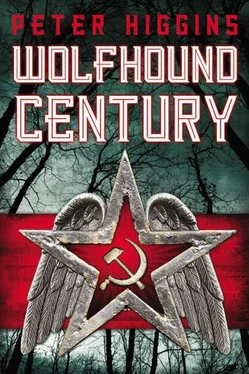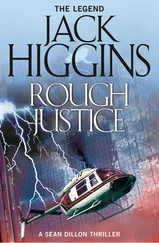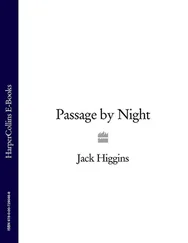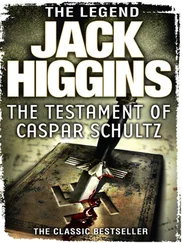Kantor was tired of playing games. It was time to end this. End the pretence. Open her eyes. Peel back the lids. Make the child stare at some truth.
‘I’m not your father,’ he said.
She stared at him.
‘What?’ she said. ‘What do you mean? Yes you are.’
‘That’s what your mother told you, apparently, but she lied. Of course she lied. She always lied. How could I be your father? She would not… your mother would not… She refused me… For months. Before she became pregnant. She went into the trees. She kept going there. And then she abandoned me and ran back home to Mirgorod. You’re not my child. I’m not your father. I couldn’t be.’
There was raw shock in her face.
‘I don’t believe you,’ she said. ‘You’re lying.’
But he saw that she did believe him.
‘What does it matter, anyway?’ he said. ‘What difference does it make?’
‘It matters,’ she said. ‘It matters to me.’
‘Hoping for a cuddle from Daddy? Then ask your mother who he is. If you can get any sense out of the old bitch.’
The girl was staring at him. Her face was white and set hard. Blank like a mask. So be it. She would not look to him for help again.
‘You bastard,’ she said quietly. ‘You bastard.’
‘Technically, that’s you. The forest whore’s bastard daughter.’
‘Fuck you.’
After she had gone Kantor extinguished the lamp again and sat for a long time, considering carefully. The girl’s visit had stirred old memories. Vig. The forest edge. The Pollandore. He’d thought he had eradicated such things. Killed and forgotten them. But they were only repressed. And the repressed always returns. The girl had said that.
He should have done something about the Shaumian women long ago: that he had not done so revealed a weakness he hadn’t known was in him, and such weakness was dangerous. More than that, the girl was a threat in her own right. She was rank with the forest, and surprisingly strong. She had caused him to show his weakness to her. He would have to do something: the necessity of that was clear at last. He must end it now. He was glad she had come. Laying bare weakness was the first step to becoming stronger. In the familiar dialectic of fear and killing, only the future mattered. Only the future was at stake.
Maroussia Shaumian walked out through the night din and confusion of the dockyard and on into nondescript streets of tenements and small warehouses. She was trembling. She needed to think, but she could not. There was too much. She walked. Wanting to be tired. Not wanting to go home. Scarcely noticing where she went.
There was rain in the air and more rain coming, a mass of dark low cloud building towards the east, but overhead there were gaps of clear blackness and stars. She didn’t know what time it was. Late.
She came at last to the Stolypin Embankment: a row of globe lamps along the parapet, held up by bronze porpoises. Glistening cobbles under lamplight. Beyond the parapet, she felt more than saw the slow-moving Mir, sliding out into the Reach, barges and late water taxis still pushing against the black river. The long, punctuated reflections of their navigation lights trickled towards her, and the talk of the boatmen carried across the water, intimate and quiet. She couldn’t make out the words: it felt like language from another country. A gendarme was observing her from his kiosk, but she ignored him and went to sit on a bench, watching the wide dark river, its flow, its weight, its stillness in movement. She took the knotted nest of forest stuff out of her pocket and held it to her face, breathing in its strange earthy perfume. Filling her lungs.
And then it happened, as it sometimes did.
A tremble of movement crossed the black underside of the clouds, like wind across a pool, and the buildings of the night city prickled; the nap of the city rising, uneasy, anxious. Maroussia waited, listening. Nothing more came. Nothing changed. The rain-freighted clouds settled into a new shape. And then, suddenly, the solidity of Mirgorod stone and iron broke open and slid away, vertiginously. The blackness and ripple of the water detached itself from the river and slipped upwards, filling the air, and everything changed. The night was thick with leaking possibilities. Soft evaporations. Fragments and intimations of other possible lives, drifting off the river and across the dirty pavements. Hopes, like moon-ghosts, leaking out of the streets.
The barges, swollen and heavy-perfumed, dipped their sterns and raised their bows, opening their mouths as if to speak, exhaling shining yellow. The porpoises threw their mist-swollen, corn-gold lamp-globes against the sky. The cobbles of the wharf opened their petals like peals of blue thunder. The stars were large and luminous night-blue fruit. And the gendarme in his kiosk was ten feet tall, spilling streams of perfume and darkshine from his face and skin and hair.
Everything dark shone with its own quiet radiance and nothing was anything except what it was. Maroussia felt the living profusion of it all, woven into bright constellations of awareness, spreading out across the city. She looked at her own hands. They were made of dark wet leaves. And then the clouds closed over the stars and it started to rain in big slow single drops, and Mirgorod settled in about her again, as it always did.
It was late when Lom got out of Krogh’s office. The streets about the Lodka were deserted. Shuttered and lightless offices. The wind threw pellets of rain in his face. Water spurted from downpipes and spouts and overflowing gutters, splashing on the pavements. Occasionally a private kareta passed him, windows up, blinds drawn.
In his valise he had a folder of newspaper clippings — accounts of attacks and atrocities attributed to Kantor and his people, Krogh had said — and one photograph, old and poorly developed, of Kantor himself, taken almost twenty years ago, at the time of his transfer to Vig. And he had a mission. A real job to do. At last. Mirgorod spread out around him, rumbling quietly in the dark of rain and night. A million people, and somewhere among them Josef Kantor. And behind him, shadow people. Poison in the system. The ache in his head had gone, but it had left him hungry. He needed something to eat. He needed a place to stay. He needed a way in. A starting point. He wished he’d asked Krogh about money.
In his pocket he had Raku Vishnik’s address: an apartment somewhere on Big Side. He had a vague idea of where it was, somewhere to the north, beyond the curve of the River Mir. Not more than a couple of miles. He had no money for a hotel, and he didn’t want to pay for a droshki ride, even if he could find one. He would go to Raku. Assuming he was still there. Lom buttoned his cloak to the neck and started to walk. A fresh deluge dashed against his face and trickled down his neck. A long black ZorKi Zavod armoured sedan purred past him, chauffeur-driven, darkened black windows, the rain glittering in its headlamp beams. White-walled tyres splashing through pools in the road. Lom hunched his shoulders and kept moving.
The hypnotic rhythm of walking. The sound of water against stone. As he walked, Lom thought about the city. Mirgorod. He’d never seen it before, but all his life he had lived with the idea of it. The great capital, the Founder’s city, the heart of the Vlast. Even as a child, long before the idea of joining the police had taken shape, the dream of Mirgorod had taken root in his imagination. He remembered the moment. Memories rose out of the wet streets. He was back in Podchornok, at the Institute of Truth. Seven years old. Eight. It was another day of rain, but he was in the library, looking out. He liked the library: there were deep, tall windows, their sills wide enough to climb up onto and crouch there. Although it was grey daylight, he pulled the curtain shut and he was alone: on one side the heavy curtain, and on the other the windowpane, rain splattering against it and running in little floods down the outside of the glass. Beyond the window, the edge of the wood — not the forest, just an ordinary wood, rain-darkened, leafless under a low grey sky. And him, reading by rainlight.
Читать дальше












